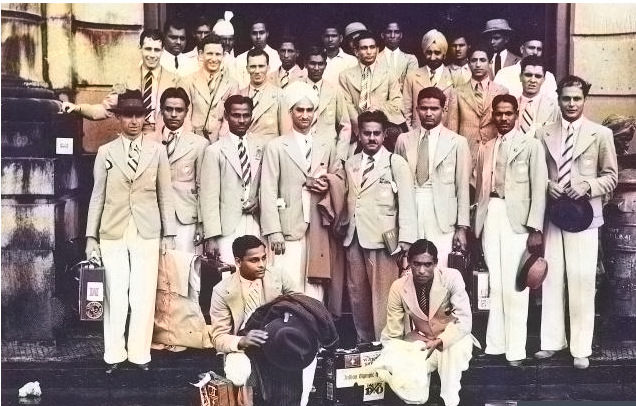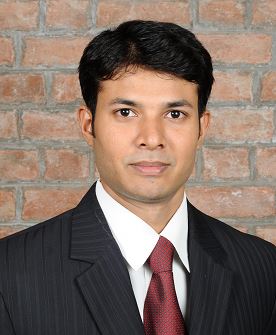On Major Dhyan Chand’s 111th birth anniversary, we remember how 'The Wizard' and his men stood up to Adolf Hitler
It was the end of the summer of 1936. The darkness had not spread yet, but the mighty machinations of Mordor had already set rolling.

All opposition had been ruthlessly put down, the Jews had been ostracized for over three years now, the women were already subjugated, the supremacy of the Aryan race absolute in their minds, and ultra-nationalistic fervor had been trumped up to dizzying heights with propaganda. Joseph Goebbels, in his infinite wisdom, had decided that the resplendent glory of the Third Reich should be showcased to the world with the Berlin Olympics of 1936. A little while later, a bunch of little hobbits from that mystic land of India had landed and had run riot through the hockey event to reach the final. But, they now stood against the mighty Germans in the final. Germany had already defeated India in a practice match, and hoped to repeat that in the final on August 14. Divine interruption or not, rain interrupted play, and the match was postponed to that date we would come to know dearly - August 15th.
However, India had not been a sudden revelation at Berlin. The Indian team, a representative of the British dominion that stretched across the subcontinent, had arrived on the hockey stage with an Olympic Gold in 1928, and they had defended it in 1932. They were so dominant that when the All India Team had completed its tour of New Zealand in 1935, the New Zealand Sporting Life, in its front-page headline, described India's play as: "The Indians Call It Hockey - We Call It Magic.". The inimitable Don Bradman would say of the 385 goals scored by India in that tour, " Until now I thought centuries were scored only in cricket.". India came into the 1936 Cup as the World Champions.
In fact, India had been so dominant that after 1928, Great Britain had stopped playing Olympic hockey in an apparent measure to avoid the embarrassment of a defeat against one of its own colonies.
Ever since India first appeared in international field hockey, Great Britain had studiously avoided playing the Indian hockey team, apparently afraid of the embarrassment of losing to one of its colonies.
Olympic historian David Wallenchinsky
It was so unthinkable for the Empire, where the Sun never set, to lose to a team from its prized colony of brown men. Imperialism had found its pinnacle in the British, but Hockey had found its own in that Indian team in 1936.
However, the Imperialist game of cat and mouse had just reached its final and goriest phase. Outdone by the others and still smarting from the humiliation of WWI, Hitler's Germany had just embarked on its own quest of Imperialism. They had aided Mussolini's colonial incursions in Africa and would soon stake their own claim, albeit late, in the race for colonies across the world. In fact, as much as the historians from the victorious side have claimed the WWII as the fight of good versus evil, it was equally a war over the possession of colonies, and who tops the land-owners leaderboard. And here was a group of men from “that side of the world” that stood for all those dispossessed and brought under the 'benevolent' Imperial leadership of the West.
More importantly, the Indian team represented the diametric opposite to Adolf Hitler's idea of the world. The Nazi party had already completed its vision of the perfect Aryan with blonde hair and blue eyes, and the tool to achieve that – eugenics or selective breeding of humans to cull out the unfavorable traits.
We had amongst us ages ranging from twenty to forty, skins in all shades of white and brown, heights varying from 5 feet to 6 feet, beardless and bearded, from no moustaches to moustaches of every description, from leanness carried to extremities to muscles bulging out of blazers, Aryan, Dravidian and Mongolian features, bare-headed, hats and turbans. What a variety in appearance! And still greater by far in thoughts, habits, temperament and general outlook on life.
Vice-captain Mirza Masud
It was not just a game of hockey anymore in 1936. "We are going to Berlin not only to defend our world hockey title, but also as custodians and exponents of India's culture and civilization," said India's manager before they departed the shores.
India arrived and duly were pitted against the German team. The visitors put in a full team except for Dhyan Chand's younger brother, Roop Singh, one of the greatest forwards the game has seen. Lack of understanding of the local conditions and their failure to adapt to them saw India lose 1-4 to the Germans. That came as a rude shock, and they realized this German team was vastly different from the past ones. Germany were the only other title contenders, and the defeat had served as a wake-up call. India then breezed past the other seven practice games with one-sided victories.
The team would have their first glimpse of the Fuhrer in the Opening Ceremony at the Maifield. After the “Heil Hitlers”, Hitler took his honorary place on the dais, and the crowd was greeted by the march of the participating nations. Austria received one of the loudest receptions from the crowd – how they would come to fear the same Germans in 3 years! On India's march, Mirza Masud wrote, “India rose before our imagination, her poor begging for bread, her unemployed struggling for existence, and her rich carefree of everything except themselves.”
In their first match, India defeated Hungary 4-1 despite not being at their best, what with laxity setting into their preparations. However, Roop Singh was back and scored two goals to bring the sting back into the Indian attack. In the second, India faced the USA who they had drubbed 1-0 in the practice game, and duly went on to demolish them 7-0. Dhyan Chand, Roop Singh, and Sayed Jaffar scored two apiece. In the next game against Japan, India went goalless for the first 20 minutes, but once the floodgates opened, Dhyan Chand scored 4 goals, and India ended up defeating the Japanese 9-0.

 ©
© In the semi-final, India faced France, who they defeated 10-0. Dhyan Chand scored four, Roop Singh two, and newly arrived Ali Dara also scored two as India entered the final. Germany had, meanwhile, entered the final with a 3-0 win over Netherlands.
When the final arrived on August 15th, the stadium sported a record German crowd, that included Adolf Hitler. India were still smarting from the defeat at the hands of the Germans three weeks back, while the Germans had the entire crowd behind them. When the match began, India were just not able to assert their superiority in the match, and the first 32 minutes of the match went goal-less. Finally, Roop Singh broke the deadlock dribbling past two defenders and slotting the ball into the left bottom of the net, and India held a slender lead of 1-0 at half-time.
India soon were up 4-0, with Dhyan Chand scoring the third and fourth goals before Germany came back with a goal of their own to make it 1-4. But India responded immediately with a goal off a solitary run by Jaffar. Mirza Masud described it thus - “Jaffar got the ball from the centre-line and ran down with it. He pretended to pass it to his inside-forward or centre-forward several times, but each time carried it off till he reached the striking area. Here, by a superb dodge of the body, he tricked once more the German defence and placed the ball neatly in a corner of the goal, thus giving India the fifth goal.” India finally took the Gold with an 8-1 margin. Dhyan Chand had mesmerized the crowd with three goals, and Dara had scored two.
However, Dhyan Chand and the Indian team had stood for more than what they had set out to. They had shown Der Fuhrer the folly of his grandiose vision of a homogeneous and pure race. Along with Jesse Owens, they had brought down the myth of the superiority of the Aryan race with their motley bunch of men from different creeds, races and traditions. That Hitler would refuse to see that and would go on to wreak the world in three years is another matter. They stood for the conquered across the continent and beyond against their conquerors and had defeated them one after the other in their own backyard. Even more endearing is the fact that they did so on the day that would serendipitously come to mark India's freedom from the Imperialist forces of the West. And 80 years later, while the nation lays in depression, as it awaits a solitary medal from the Olympics, this look back at our past glory is a guilty pleasure, a simple smile that breaks the gloom, a ray of gentle light that glimmers around the dark clouds. Happy Independence day!
The historical facts of India's exploits in 1936 have been derived from the book 'The World's Hockey Champions 1936' By Olympic Gold Medallist M. N. Masood.

Comments
Sign up or log in to your account to leave comments and reactions
0 Comments